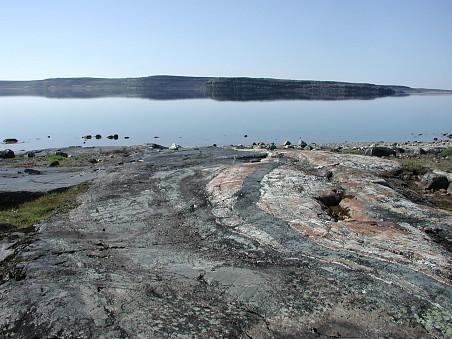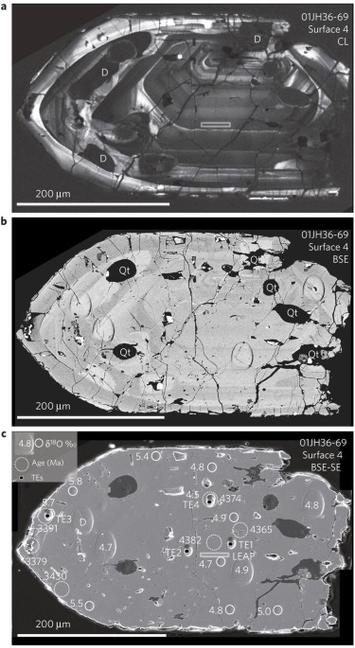Everyone's talking about the new rocks! You know, the new *really old* rocks.
The hellishly hot span of time called the Hadean Eon began with the Earth's formation about 4.6 billion years ago, and ended shortly after the invention of rocks. 🔥 Then came the Late Heavy Bombardment, 4.1 billion years ago, when a lot of meteors and asteroids hit the inner planets like Earth. ☄️ Then came the Archean Eon, when the Earth was almost completely covered with deep oceans. 🌊
The Nuvvuagittuq Greenstone Belt in Canada seems to be the only bit of the Earth's crust dating back to the Hadean. The picture shows part of this belt.
A new study of isotopes of samarium and neodymium in some rocks from there claims they're about 4.16 billion years old! Here's a pretty good explanation:
https://www.sciencenews.org/article/earths-oldest-rocks-4-16-billion-years
The Nuvvuagittuq Greenstone Belt is on the eastern shore of Hudson Bay. The closest town is Inukjuak, 40 kilometers away, not accessible from the rest of the world by road. This is much cooler than if the only known fragments of Hadean crust were in Trenton, New Jersey.

 There are a lot of places in Nord du Québec not accessible from the rest of the world by road 🙂
There are a lot of places in Nord du Québec not accessible from the rest of the world by road 🙂